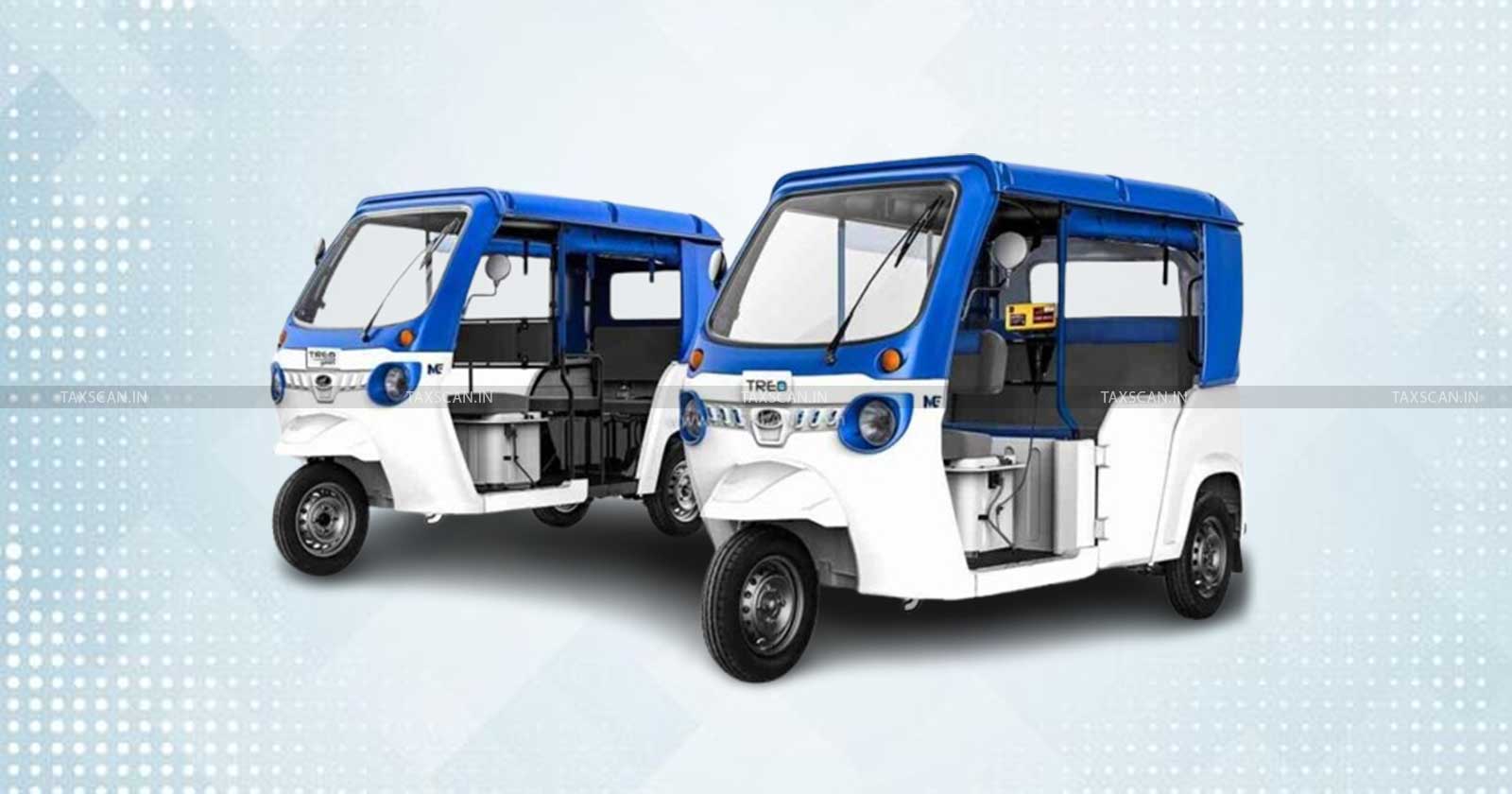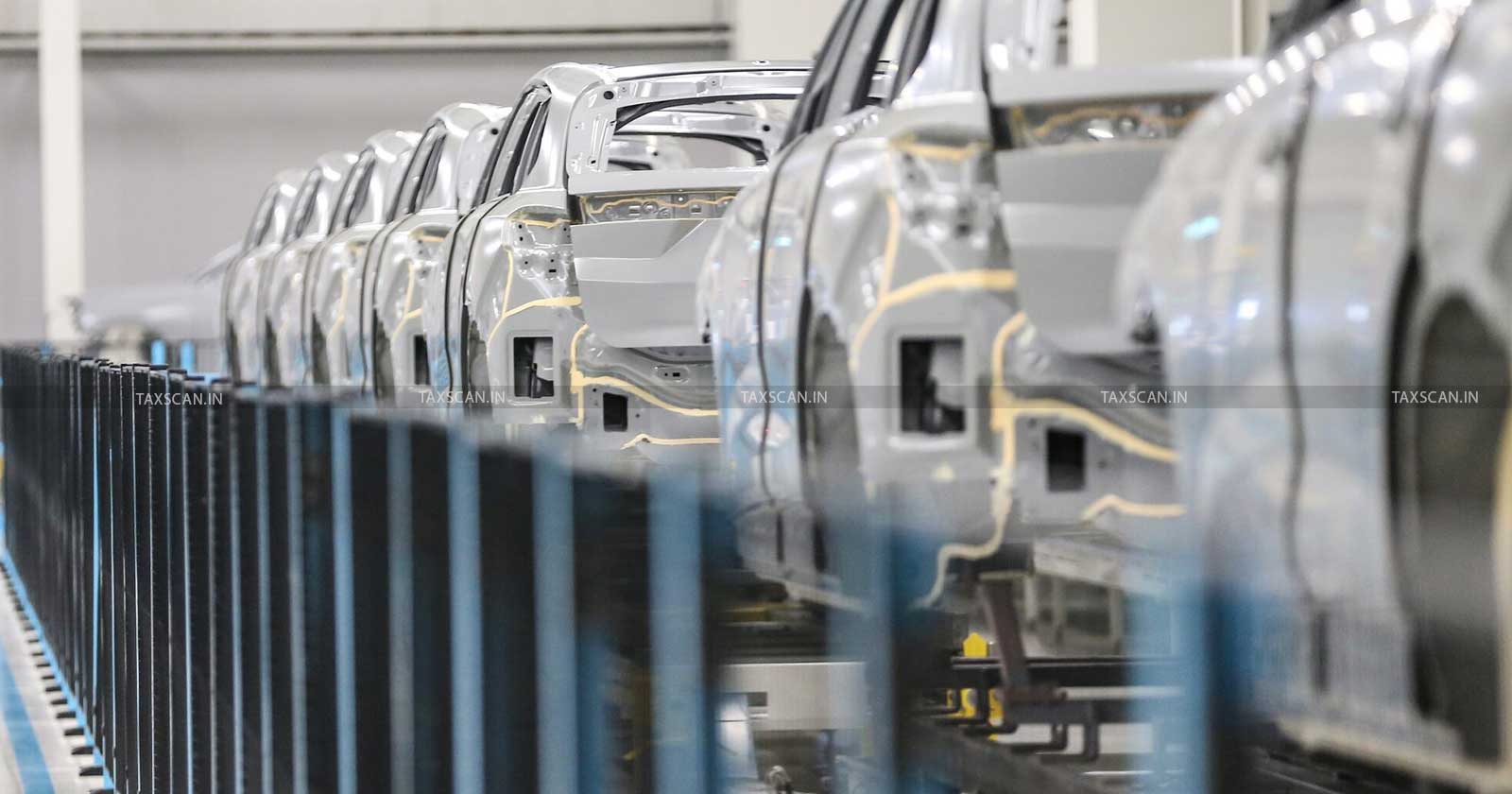Mere Assembly of Imported Components can make “e-Rickshaw”: CESTAT upholds Differential Customs Duty Demand, Penalty and Interest [Read Order]
These parts were declared as “spare parts of e-rickshaw” under tariff item 8708 9900, on which the company paid Basic Customs Duty (BCD) @ 15%, SWS @ 10%, and IGST @ 28%
![Mere Assembly of Imported Components can make “e-Rickshaw”: CESTAT upholds Differential Customs Duty Demand, Penalty and Interest [Read Order] Mere Assembly of Imported Components can make “e-Rickshaw”: CESTAT upholds Differential Customs Duty Demand, Penalty and Interest [Read Order]](https://images.taxscan.in/h-upload/2025/08/19/2078370-mere-assembly-of-imported-components-imported-components-can-make-e-rickshaw-taxscan.webp)
The Customs, Excise & Service Tax Appellate Tribunal (CESTAT), Principal Bench at New Delhi, has held that the import of essential components of an electric rickshaw (E-rickshaw), even in semi-knocked down (SKD) or completely knocked down (CKD) condition, amounts to import of a complete vehicle and hence attracts classification under CTH 8703 9000 (Motor Vehicles) rather than CTH 8708 9900 (Parts & Accessories).
The case arose when the customs assessee, Delhi, imported consignments of converters, charging sockets, controllers, throttles, motors, digital speedometers, shock absorbers, and other parts between May and November 2019. These were declared as “spare parts of e-rickshaw” under tariff item 8708 9900, on which the company paid Basic Customs Duty (BCD) @ 15%, SWS @ 10%, and IGST @ 28%.
However, a post-clearance audit revealed that the components imported were in complete sets, sufficient for assembling E-rickshaws. The Department noted the misclassification, imposing the correct classification as under CTH 8703 9000, attracting BCD @ 125%, leading to a steep differential duty imposition.
The Principal Commissioner of Customs, ICD Tughlakabad, confirmed duty liability of ₹14.82 crore, imposed a penalty of ₹1 crore under Section 112(a)(ii) of the Customs Act, 1962, and ordered confiscation of the goods (without redemption fine).
Comprehensive Guide of Law and Procedure for Filing of Income Tax Appeals, Click Here
 Also Read:“Enormous Push to Environmentally Safer and Friendly Vehicles”: Delhi HC reduces CESTAT Pre-Deposit to ₹5.5 Lakh on E-Rickshaw Import Classification [Read Order]
Also Read:“Enormous Push to Environmentally Safer and Friendly Vehicles”: Delhi HC reduces CESTAT Pre-Deposit to ₹5.5 Lakh on E-Rickshaw Import Classification [Read Order]
On appeal, the assessee argued that the imported goods, by themselves, did not constitute complete rickshaws, as major parts like chassis, tyres, and batteries were sourced locally. They stressed that only as “presented” before Customs should the classification be judged, not by possible assembly in India. Reliance was placed on judicial precedents including Sony India Ltd. (SC) and ITC Ltd. (SC) decisions.
The Revenue, however, relied on Rule 2(a) of the General Interpretative Rules, CBIC Circulars, and the 2014 ICD TKD Office Order, which recognizes five core assemblies. Motor, transmission, axle, chassis, and controller as imparting the “essential character” of an E-rickshaw. Since the imports included motor, controller, and other integrated parts in identical sets, the Department maintained that the consignments effectively represented CKD/SKD condition of E-rickshaws.
 Also Read:India Launches EV Manufacturing Portal: Global Automakers Can Import Premium EVs at Slashed 15% Customs Duty Under SPMEPCI Scheme [Read Order]
Also Read:India Launches EV Manufacturing Portal: Global Automakers Can Import Premium EVs at Slashed 15% Customs Duty Under SPMEPCI Scheme [Read Order]
The Tribunal bench, after examining the Bills of Entry, noted that most essential components were imported in equal numbers - 1,000 sets each in some consignments which was noted to be clearly indicative of intent to assemble complete vehicles.
Upholding the adjudicating authority’s view, the Bench comprising Dr. Rachna Gupta (Judicial Member) and Ms. Hemambika R. Priya (Technical Member) ruled that, “Even though some components are locally procured, the goods imported had the essential characteristics of an E-rickshaw in CKD/SKD condition. Accordingly, classification under CTH 8703 9000 is correct.”
Rejecting the appeal, CESTAT confirmed the ₹14.82 crore duty demand, interest, and penalty.
Support our journalism by subscribing to Taxscan premium. Follow us on Telegram for quick updates


